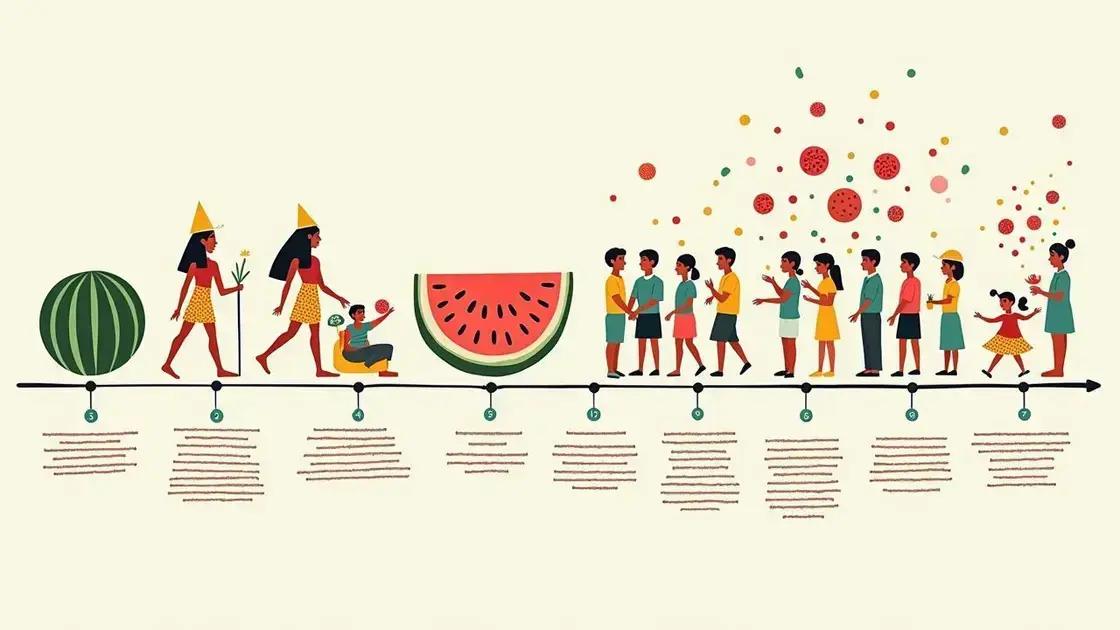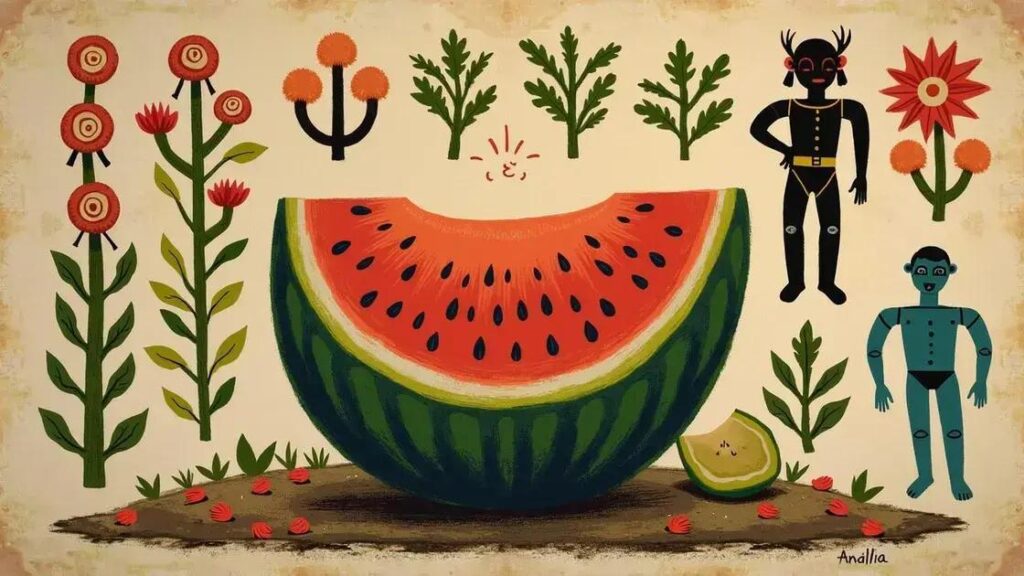The Watermelon Trick is a popular and playful activity associated with joy and community, symbolizing cultural significance in celebrations around the world. It has historical roots, representing prosperity in ancient times, while today it highlights the fruit’s health benefits and versatility in culinary use at social gatherings.
Have you ever wondered if the Watermelon Trick is backed by cultural evidence? This intriguing idea has fascinated many, prompting questions about its origins and truth. In this article, we will explore the cultural beliefs surrounding the Watermelon Trick, examine historical evidence supporting or debunking it, and discuss its implications in today’s society. Join us as we dive deep into this refreshing topic!
Understanding the Watermelon Trick

The Watermelon Trick is a fun and intriguing concept often associated with summertime and picnics. What exactly is the Watermelon Trick? Simply put, it involves using a watermelon to create a surprising effect or a fun activity.
Origins of the Watermelon Trick
While the specific origins of the Watermelon Trick are unclear, it has been part of various cultural practices. In some regions, it is associated with celebration and festivities, adding joy to gatherings.
How the Watermelon Trick Works
The basic idea often centers around the use of watermelon as a playful item in games or tricks. People may slice it in a unique way to reveal surprising designs or flavors. This ability to engage and entertain is a big part of its appeal.
Cultural Impact
The Watermelon Trick showcases how food can play a role in social interactions. From backyard barbecues to larger events, the watermelon has become a symbol of summer fun. Its bright color and sweet taste connect people and create shared experiences.
Cultural Beliefs Surrounding Watermelon

Watermelon holds different meanings in various cultures around the world. In many places, it is seen as a symbol of fertility and prosperity. This belief often ties to its vibrant color and juicy sweetness, which evoke feelings of abundance.
Watermelon in Folklore
In some cultures, the watermelon appears in traditional stories and folklore. For example, it may be associated with celebrations such as harvest festivals, where it represents good luck and a bountiful yield.
Regional Beliefs
In Africa, watermelons are cherished for their refreshing taste, especially in hot climates. They symbolize community and togetherness, often shared among families during gatherings. In the United States, watermelons signify summer and leisure time, connecting with picnics and cookouts.
Modern Symbolism
Today, the watermelon continues to represent joy and positivity in various cultures. It is often featured in art, music, and popular culture, highlighting its role as a beloved fruit. The colorful and playful nature of watermelon enhances its status as an icon of happiness.
Historical Evidence Supporting the Trick

The Watermelon Trick has roots that can be traced back through various historical contexts. Evidence suggests that watermelons have been enjoyed for centuries, with records dating back to ancient Egypt. In these times, they were used in rituals and celebrations.
Ancient Practices
Historians believe that ancient Egyptians saw watermelons as a symbol of prosperity. They depicted watermelons in their art and even planted them in tombs to provide sustenance in the afterlife. This reflects the fruit’s significance in culture and belief.
Watermelons in Different Civilizations
As watermelon cultivation spread across the globe, it became part of different cultures’ practices. In China, people have celebrated the Summer Solstice with watermelon. This shows how traditions have developed around the fruit, creating community bonds.
Modern Observations
Today, the Watermelon Trick is sometimes seen in events, fairs, and social gatherings. People showcase the fruit in playful manners, which ties back to its historical roots of being cherished and celebrated in various cultures. This continuing tradition helps maintain the joy and excitement that the watermelon brings.
Implications of the Watermelon Trick Today

The Watermelon Trick today continues to hold cultural significance in various social settings. For many, it represents a fun and engaging activity during summer gatherings, barbecues, and festivals. The playful nature of the trick contributes to feelings of joy and togetherness.
Social Gatherings
In modern times, the watermelon is often a centerpiece at picnics. Families and friends gather to partake in the Watermelon Trick, enhancing their bond. This creates cherished memories and strengthens community ties.
Health Consciousness
As health trends rise, the watermelon is seen as a healthy choice. Its low calorie content and high water levels make it a refreshing option. This aligns with the contemporary emphasis on healthy eating while still enjoying fun experiences.
Creative Culinary Uses
Chefs and food enthusiasts have embraced the watermelon in creative ways. It’s transformed into salads, drinks, and desserts, showcasing its versatility. The Watermelon Trick inspires culinary innovation, appealing to both traditional and modern tastes.
In Summary, the Watermelon Trick Holds Cultural Significance
The Watermelon Trick has captured the imagination of many and remains a fun, cultural activity that enhances social interactions. From its historical roots in ancient rituals to its modern-day celebrations at gatherings and festivals, it is more than just a playful trick; it represents joy, community, and creativity.
This delightful fruit continues to inspire culinary innovation while promoting health-conscious choices. As we enjoy the Watermelon Trick today, we connect with the past and create lasting memories for the future.
As such, embracing this vibrant tradition allows us to appreciate its cultural value and the joy it brings to our lives.
FAQ – Frequently Asked Questions about the Watermelon Trick
What is the Watermelon Trick?
The Watermelon Trick is a playful activity often done at social gatherings, involving surprising ways to present or use watermelons.
Is there cultural significance to the Watermelon Trick?
Yes, the Watermelon Trick has cultural roots, symbolizing joy and community in various celebrations around the world.
How has the Watermelon Trick evolved over time?
The Watermelon Trick has evolved from ancient traditions to modern-day celebrations, remaining a fun part of summer gatherings.
Why is watermelon considered healthy?
Watermelon is low in calories and high in water content, making it a refreshing and hydrating fruit choice.
Are there creative recipes using watermelon?
Absolutely! Watermelon is used in salads, drinks, and desserts, showcasing its culinary versatility.
How can I incorporate the Watermelon Trick into my events?
You can plan summer parties or picnics that include the Watermelon Trick as an entertaining activity, engaging guests in the fun.













